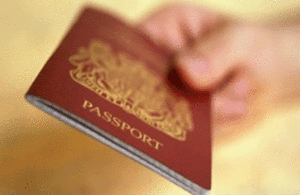ETDs (Emergency Travel Documents): Save money, Save strain
ETD cases can often be avoided if you value your passport, treat it with care, know where it is at all times and check its validity.

Every year our staff help British Nationals who need to apply for an Emergency Travel Document (ETD) because they can’t find their passport or it has expired. Following these simple suggestions and tips can help you avoid the need to apply for an ETD.
Lost Passports
British Nationals can find themselves in need of an ETD because they haven’t kept their passports safe. In Belize we frequently encounter customers who have accidentally left their passport in the back of a taxi or have misplaced it after clearing immigration at the airport. Being careful with your passport can make all the difference in avoiding the need for an ETD.
Stolen Passports
Reading travel advice on Gov.UK will provide you with essential information about crime rates, remind you of thefts by gangs targeting tourists’ vehicles and remind you to be vigilant with bags when travelling. Savvy travelers know that the key to a successful trip is to avoid having a passport stolen.
Expired Passports
Ex-pats living abroad often need to take an unplanned trip to visit an aging parent, a relative who has fallen ill or for the funeral of a loved one. They are frequently unable to travel because their passport has expired. Others make holiday arrangements only to learn that their passport doesn’t have the necessary validity to enter a certain country. Applying for an ETD can be avoided if you know when your passport expires, renew it in good time and check the requirements for your holiday destination.
Obtaining an ETD can be costly. Not only will you have to pay the £95 GBP fee, you will also have to visit your nearest consulate which could be a flight or long drive away. Following these simple tips can help ensure you avoid the need for an ETD:
FCO Passport Tips for British Visitors and Ex-pats:
-
Know where your passport is at all times and keep it in a safe place.
-
Know the expiry date of your passport and renew it in good time.
-
Value your passport and look after it carefully. A damaged passport cannot be used for travel.
-
Never leave your passport in a rental car, even for a short period. Rental cars are prime targets for theft.
-
Your passport is not always safer on you. Lock your passport in a safe if you have access to one and take another form of ID, such as your driving licence, out with you.
-
Make two photocopies of your passport – leave one with friends or family and take the second with you, or store it online using a secure data storage site.
-
Use this photocopy as alternative ID, for example when going out at night.
-
Make sure your passport is valid. For certain countries your passport must be valid for 6 months after the date you travel – check the entry requirements before you go.
Visit Gov.UK for specific travel advice that will help you stay informed.
Look for us on Twitter where staff will be able to answer your questions and give advice.